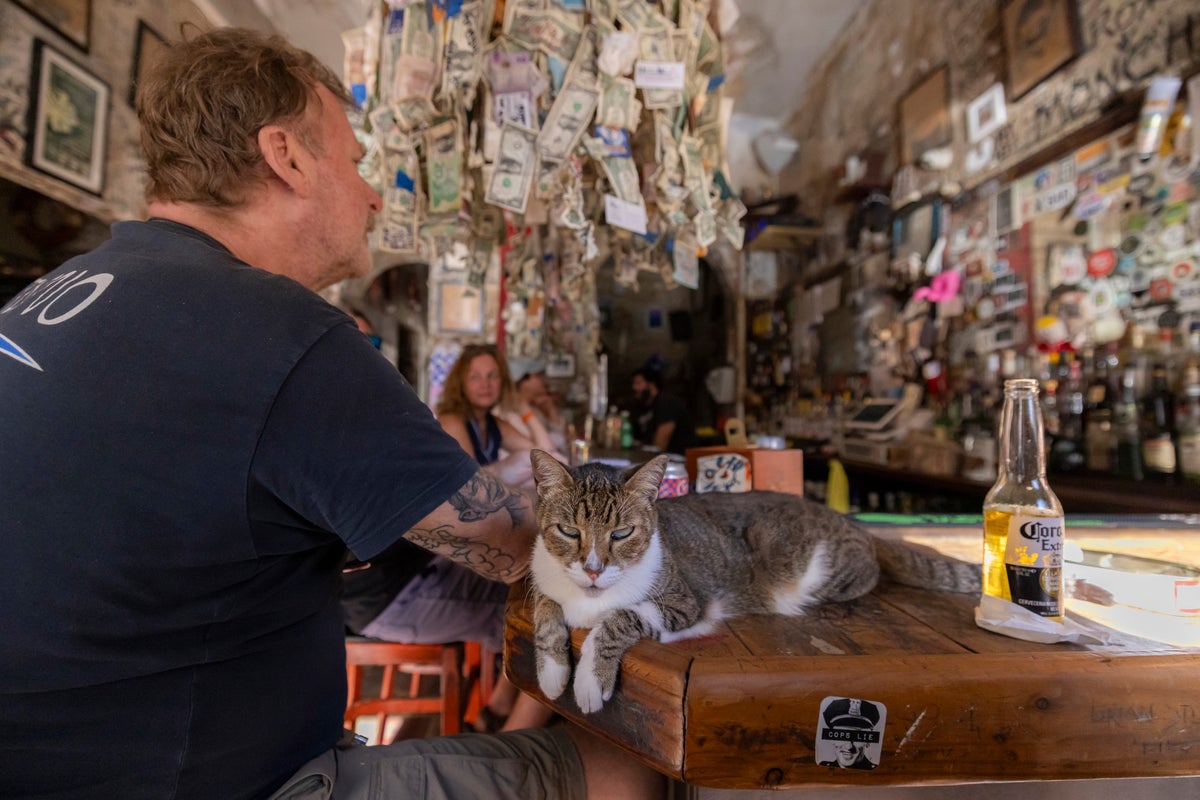
Support truly
independent journalism
It’s a tail as old as time. You’re in the right place at the right moment and the next thing you know, you’re living in the White House.
That’s what happened to a stray, gray, green-eyed cat named Willow, who turned up at a Joe Biden rally in Pennsylvania in 2020, jumped onstage and left with soon-to-be first lady Jill, who later wrote a book about her.
Plenty of other four-pawed wonders have landed on their padded feet in famous and fortuitous places.
And it works both ways: Cats bring value to the venues they inhabit, whether it’s simply adding a cute factor or ratting on rodents. Sometimes, they even come to define the place.
London's feline royalty
Take Lilibet, for example.
She’s a Siberian Forest cat who spends one of her nine lives stretching her toe beans and snoozing by the fire at the five-star Lanesborough Hotel in London. Plenty of people check in just to check out the resident cat, who is named after Queen Elizabeth II, says managing director Stuart Geddes.
And Lilibet, who has hypoallergenic fur, isn’t the only cat living in a grand British building.
Hodge sits inside the sacristy at Southwark Cathedral, founded in 1106 on the south bank of the Thames River. He roams around delighting visitors and popping into the shop for treats, where fans can also buy their own plush version of him.
Not far away, across the Thames, is Larry, the famous cat of 10 Downing St., where he has stayed longer than most prime ministers — Kier Starmer is his sixth.
Employed as Chief Mouser to the Cabinet Office, Larry pays his way by keeping the official office and residence of the PM more cat than mouse. He outlasted his rival Palmerston, a previous Foreign Office puss who retired to the British countryside in 2020.
Treasured by museums
It’s a similar situation at the Hermitage Museum in Saint Petersburg, Russia.
About 80 cats get to call Catherine the Great’s Baroque palace home in return for keeping the pest population down. They have their own press officer and staff of volunteers, who keep them publicized, fed and watered while they pad around Russia’s state museum.
Another museum delighted to play host to a colony of cats is The Hemingway Homes and Museum, in Key West, Florida. Fifty-nine cats roam freely through the estate, half of them descendants of Hemingway's own six-toed cat, Snow White.
Visitors are kept away from the original furniture, but the animals lounge on the writer’s desk. A large “Cat Bible” helps track the lineage of the resident felines.
Alexa Morgan of the Hemingway museum says they are an extra draw.
“We have visitors that come here for Hemingway, and then once they see the cats and they love them, then it’s like they visit again so they can come back and see the cats,” she said.
Meowing mascots
And then there are those moggies without an impressive family tree or breed.
In Puerto Rico 's Cuartel de Ballajá one Tuesday, a cat arrived at the Don Ruiz Coffee Shop in San Juan. She spent her time napping and permitting patrons to pet her (when in the mood ). They named her Tuesday, and she became a regular.
In Venezuela, under a banner of Hugo Chavez, an unnamed cat has become well-known to the journalists of Caracas. Often found snaking between the tripods of TV crews at the National Electoral Council, this mysterious animal keeps reporters company as they wait for updates, playing with the occasional audio cable and generally strutting around like it runs the place.
Meanwhile, Lule is so beloved at the Dit' e Nat (Day and Night) bar in Pristina, Kosovo, that her feline face has become its symbol, even on the sugar sachets. Owner Genc Salihu says she’s part of the family, and people turn up just to see and pet Lule.
“She is very much the soul of the place."
—-
Adam Egan in London, Kirill Zarubin in St Petersburg, Freida Frisaro in Florida, Florent Bajrami in Pristina, Alejandro Granadillo in San Juan, and Juan Arraez in Caracas contributed to this report.







